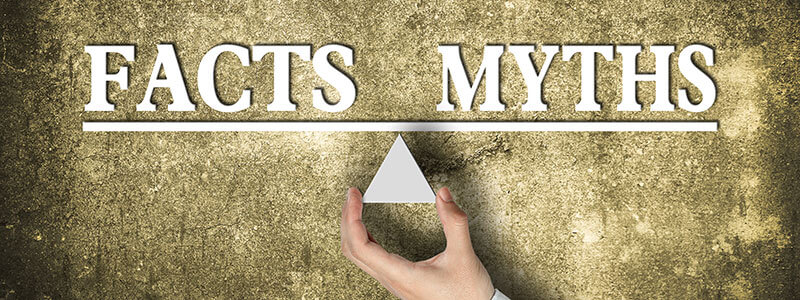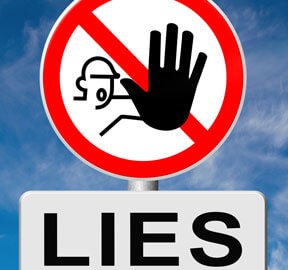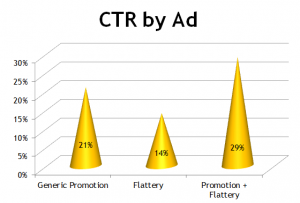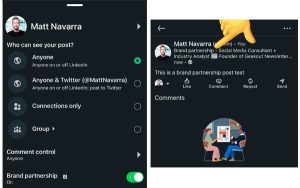
Despite their importance in the employment screening process, background checks are often subject to myths and misconceptions. Some of the misconceptions are harbored by employees. Others are harbored by job seekers. Most are based on a basic misunderstanding about the nature, process or laws surrounding background checks.
To fully appreciate the importance of background checks, it is important to debunk the main misconceptions around them.
The 6 common pre-employment background check misconceptions are the following:
A Criminal Record Means No Hire
Both employers and job seekers tend to have this misconception. Most recruiters think that by virtue of having a criminal record, an applicant shouldn’t be hired. Most job seekers also think that a criminal record means they won’t get hired.
The reality is seldom black and white. For starters, the Equal Employment Opportunity Commission (EEOC) places certain restrictions on when criminal records can be used to deny employment. One EEOC requirement is that the nature of conviction must directly affect the nature of the job. For instance, a DUI may disqualify someone applying to be school driver, but it cannot be grounds for disqualifying a would-be accountant.
Also, as most employers have realised, background checks sometimes return false results. Therefore, rushing to make decisions can lead to lawsuits. As such, most employers now offer applicants an opportunity to clarify their criminal records. In some cases, such a clarification can tilt the tide in the applicant’s favor. The bottom line is that a criminal record doesn’t automatically mean No Hire.
Applicants Are Powerless
Most job applicants believe that they are powerless when it comes to background checks. They think that employers hold all the cards. In fact, some employers also think that job seekers have are powerless.
This couldn’t be further from the truth. The Fair Credit Reporting Act (FCRA) gives job applicants a lot of power. For instance, a background check cannot be carried out without the applicant’s permission.
Also, FCRA mandates that, when the background check leads to a “no hire” decision, the employer is supposed to explain to the job applicant in writing, why the decision was taken. An applicant is also entitled to a copy of the background report, and can even challenge the contents.
The EEOC places restrictions when criminal background checks can be used during the hiring process. Many state “Ban the Box” laws place similar restrictions. A job seeker is allowed to sue any employer who conducts background checks outside the bounds of the law. Basically, job seekers aren’t as powerless as they imagine.
All Background Checks Are The Same
This misconception is common among employers. In fact, it is often perpetrated by vendors of cheap background check services. The goal of such vendors is to convince employers that their services are as good as the more costly ones.
However, this is a fallacy. For starters, there are different types of pre-employment background checks e.g. criminal background checks, education verification, employment verification, and sanction checks. These are clearly not the same.
Even for the same type of background checks, the results are rarely the same. Take criminal background checks for instance. There are numerous sources of data e.g. national crime databases, FBI fingerprinting, state crime databases, international databases (e.g. INTERPOL’s database), court records, and even the DMV (for traffic crimes records). Not all vendors look into all these sources of data.
The bottom line is, not all background checks are the same. The checks are conducted depending on their intended purpose. Also, each vendor has their own approach to background checking. As a result, two background checks on a single individual can yield very different results.
Having No Previous Conviction Will Lead To A Clean Background Check
This misconception is common among job seekers. Some employers also harbor it. The assumption is that if someone has never been convicted, any criminal background check on them will be clean.
However, background check results sometimes reveal criminal records – even for someone who has never been convicted. There are two possible explanations for this. First of all, a background check can sometimes yield someone else’s criminal records – often someone with a name similar to the applicant. This is similar to the scenario in which innocent people sometimes find themselves on the “No Fly List”, simply because their names resemble that of a terrorist.
The second possible explanation is identity theft. An applicant may have been a victim of identity theft and not even know it. Someone may have stolen their identity and used it to commit crimes.
The bottom line is that a background check can reveal criminal records for someone who has actually never committed a crime. This is why employers are often cautioned to give applicants an opportunity to clarify the information in the background checks. Applicants are often urged to commission background checks on themselves, so that they can see what information comes up.
Lying In A Résumé Can Cover Up Background Information

Some job applicants think that they can throw background screeners off-track by lying in their résumés. This is common among those who had not-so-good experiences with previous employers. It is also common applicants those which criminal records.
This approach may actually work if the background check is carried out by a sloppy vendor. However, any decent vendor will unveil the truth, and the applicant will be guaranteed not to get hired. The reason for this is simple: some employers can give even someone with a criminal record a benefit of the doubt. Almost no employer can even consider hiring someone who lied in their résumé.
Social Media Profiles Are Off-Limits For Background Checks
This is a common misconception especially among job applicants with unsavory online habits. They assume that recruiters won’t check out their social media profiles. Although this may have been true in the past, recruiters are now sensitive about employees’ online behavior. They know this can impact their brand in one way or another.
Currently, most background checks focus on criminal records, education or previous employment. However, some recruiters now ask background vendors to comb through applicants’ social media profiles. Any questionable behavior such as abusive or profane posts and indecent pictures or videos can cause them to reconsider their hiring decisions.
In a nutshell, those are the six most common pre-employment background check misconceptions. For employers, some of the misconceptions (e.g. about criminal records and the power of applicants) can create avenues for getting sued. For job applicants, some of the misconceptions (e.g. about lying in resumes, and social media profiles) can cause them to engage in behaviors which can reduce their chances of getting hired. Therefore, both employees and job seekers need to seek factual information about pre-employment background checks.
Business & Finance Articles on Business 2 Community(81)






